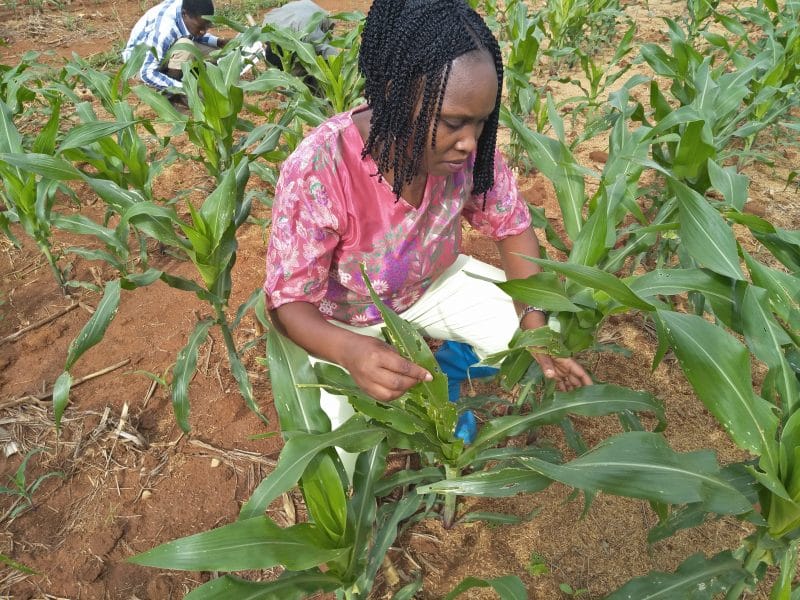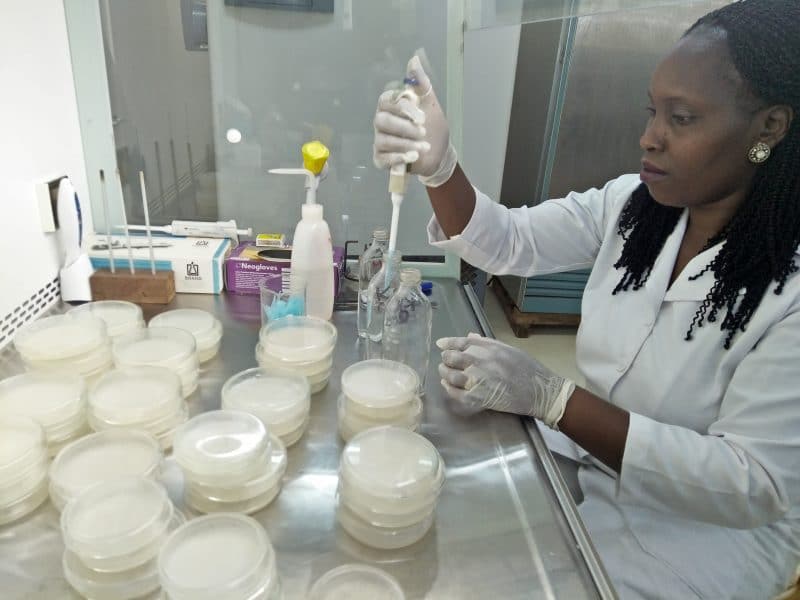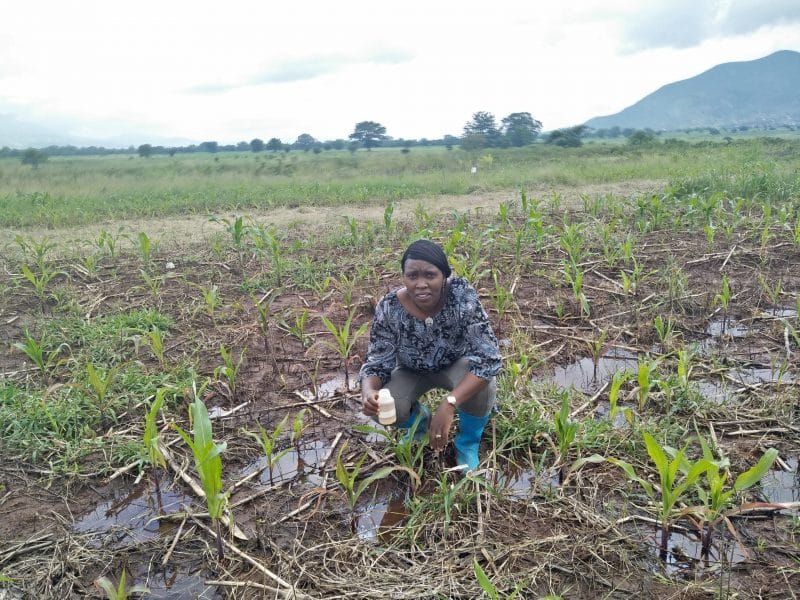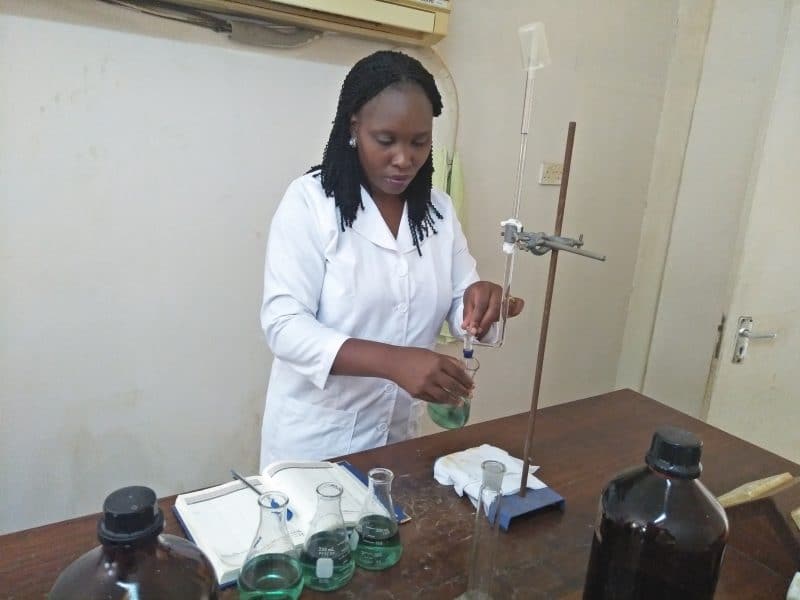
The World Wildlife Fund (WWF) Russell E. Train Fellowship is designed to build up the next generation of conservation leaders who will protect the world’s most biologically diverse places. The program provides financial support and short-term training courses to students pursuing graduate degrees in conservation. Fellows must have at least two years of conservation-related work experience and be a citizen of one of WWF’s target countries. Fellows may attend any university around the world, but are expected to return to their home countries to work as conservationists for at least two years after graduation.
We talked to Faith Muniale, a PhD student at Masinde Muliro University of Science and Technology in Kenya. She is a current WWF Russell E. Train Fellow and is pleased to share more about the fellowship program and to share her application tips.

1. What inspired you to apply for the WWF Russell E. Train Fellowship?
The fellowship is focused on conservation, with an emphasis on climate change and food security issues. My research is on ecosystem services (the benefits that humans receive from ecosystems) that accrue from conservation agriculture. I strive to decrease the drudgery of small scale farmers, particularly women, in rural areas by empowering them through training. I focus my research on the nexus of environment and agriculture, looking for efficient technologies and approaches to increase farm produce, reduce farmers’ vulnerability to climate change, and improve farmers’ livelihoods while at the same time conserving natural resources. The call by the WWF Russell E. Train Fellow was open to this kind of conservation and my research aligned well. I was excited because it would be a new type of research for me, an environmental ecology now venturing into agro-ecology for conservation.
Besides the financial support to carry out this research, I hoped to join, interact with, and learn from a network of daring conservationists working with communities like I do. This fellowship has provided so much more. Current and former fellows have been a source of inspiration when we share the work everyone is doing around the globe. Fellows share their publications and events, so it increased my access to useful resources. When I shared one of my publications, my fellowship manager introduced me to partners doing similar work in Kenya, now we are in discussion about potential collaboration.

2. How has the fellowship experience influenced your current work?
The fact that I have been able to carry out this research, for me, is very exciting! I am now into agroecology. I’ve realized from my experience so far that conservation in agroecosystems is lacking policy guidelines in my home country, Kenya. Adoption of conservation approaches has been very slow in Kenya, even though it is very necessary. Many farmers are not aware of the gravity of the situation, and the few that are may need types of machinery that can be expensive for small scale farmers, so they don’t prioritize it.
I intend to venture into policy because I believe that if policy recognized conservation agriculture, it will be easier to promote it and access funding for farmers. As policy revision is on-going in Kenya under a new dispensation of devolved governance, I have an opportunity to advocate for pro-conservation agriculture policies that will make it easier for small scale farmers to adopt the new approaches and get support for transitioning from conventional agriculture to the more climate-smart farming. The knowledge gap has been the main challenge, with the building up research findings, it will be possible to lobby the local governments to support farmers initiatives (e.g. getting simple machinery for effective conservation agriculture). All this has been made a reality because I got this fellowship that made it possible for me to carry out this research.
3. What tips would you give others applying to the fellow for WWF Russell E. Train Fellowship?
I think that this fellowship has its main focus on the conservation of natural resources. My application probably stood out because of my unique angle of conservation. My application emphasized what we could do today to make human livelihoods, food security, biodiversity conservation, and soil health better tomorrow. Having a big-picture idea of how your individual research will make a large impact is very important.
I remember the application needed a lot of specific detail which I gathered and provided. I consulted a lot with former fellows. Knowing what the committee was looking for from people who had been successful helped me in many ways — and continues to help me. Former fellows helped me write the budget in the correct format including all of the little details. I also got a lot of help from former fellows when I had to write my first report.

Faith Milkah Wakonyo Muniale is an environmental scientist with MSc in Environmental Science from Egerton University. She is currently a PhD student at Masinde Muliro University of Science and Technology and conducts research at Sokoine University of Agriculture. She has received prestigious fellowships from the WWF Russell E. Train Education for Nature 2017, Organization for Women in Science from Sub Saharan Africa 2016, and African Women in Agricultural Research and Development (AWARD) 2013. She has 8 years of experience on conceptualization, management and coordination of collaborative research and development projects in rural areas. Faith is a member of Women Organization for Change in Agriculture and Natural Resources Management (WOCAN) and British Ecological Society (BES). She received her BSc in Wildlife Management from Moi University. She is a Kenyan citizen aspiring to translate research into policy to promote sustainable development in Kenya and sub-Sahara region.
Interested in applying? Bookmark the WWF Russell E. Train Fellowship to your ProFellow account.
© Victoria Johnson 2019, all rights reserved.